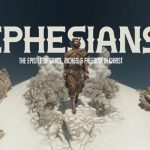Introduction
There is perhaps no other Biblical subject that confuses and confounds Christians more than that of the Mosaic Law and its applicability today. On one hand, it is believed and understood that “the law has passed away,” as Christians have been “released” from it (Rom. 7:6). On the other hand, it is also acknowledged that in some way, the Law is still relevant and good, or at least some of it is. But which parts are still relevant and good? The Ten Commandments seem agreeable, but what about the Fourth Commandment, in which we are commanded to keep the Sabbath (Ex. 20:8-11)? In the mind of many Christians, the issue is both settled and yet, a little blurry.
Most have no issue in preaching that Jesus has freed Christians from the Law, but few also take issue with preaching that one violates the Sixth Commandment when murdering a preborn child; and somehow, to refuse compensation to your pastor is equivocal to muzzling the ox while it treads out the grain (Deut. 25:4; 1 Tim. 5:17-18). Despite the confusion around this topic and the ferocity of this debate, there is a rather simple formulation that is most helpful in answering the question of how the Mosaic Law is useful to Christians today. The answer is that while the Mosaic Law found its expression in the unique circumstances of the nation of Israel, the totality of Scripture makes clear that the general equity of the Law is still binding and useful for the people of God today.
The Law as Torah
In order to navigate this subject, it will be helpful to first define what the Law is. The word translated as “law” in the relevant Old Testament texts is the Hebrew word תּוֹרָה, (tôrâ). Unfortunately, this translation is not as precise, or exact, as one might hope (Dictionary of the Old Testament: Pentateuch, 497). In a modern Western conceptualization, “law” refers to a very narrow set of commands to which one must adhere. Western laws are very exact and specific, and in order for regulation to exist around any particular set of actions, there must be explicit laws governing such actions. The Hebrew word תּוֹרָה (tôrâ), on the other hand, might better be translated as “direction” or “instruction” (A Concise Hebrew and Aramaic Lexicon of the Old Testament, 388). These certainly contain specific commands in many instances, but the meaning is also much broader than a law, in that directions or instructions might also have principles of use outside of the specific commands in which they were originally embedded. When referring to the Mosaic Law, it can therefore be noted that the Law contains specific commands that were directly relevant to Israel, but at the same time, it is best understood as a collective instruction to Israel.
Jesus Himself points to this reality when He states that all of the Law and the Prophets could be summarized into two simple commands: love God and love neighbor (Matt. 22:37-40). Another helpful way to frame the Mosaic Law is to note its status as a “case law.” The collection of commands contained therein act as specific examples by which the government and the people of Israel might obtain understanding in the variety of civil and personal judgments that they may encounter, yet which were not explicitly addressed in the Law.
An Israelite judge may have a case brought before him that the Law does not explicitly address. He may nevertheless find within the Law another command or ruling, pertaining to a different set of circumstances, that are similar enough to ascertain how best to proceed in judging the issue before him.
In approaching the Mosaic Law, it must be established that it is not a law code as Westerners might conceive of their own law codes, but that the Mosaic Law is a principled instruction embedded within a case law that was relevant to Israel and its context.
The next logical question, then, is to consider which matters were addressed by the Law for the benefit of Israel. It has long been suggested that the commands of the Mosaic Law might be loosely categorized into three helpful categories: moral laws, civil laws, and ceremonial laws. This point appears to be an obvious one, insofar as it is not difficult to delineate clear differences between the desired outcome of a given law in one category and a law in another.
It is argued by some that such distinctions and delineations do not exist, for some laws appear to have both moral and ceremonial expectations, confusing their categorization. There may indeed be categorical overlap since a law may intentionally or consequentially address more than one issue, whether moral, civil, or ceremonial in nature. Observable distinctions between the laws must nevertheless exist in order for the entire Law to operate as a useful instruction or case law. In the example of an Israelite judge who must preside over an issue of stolen livestock, to what law or laws will he turn? He will not consult the first seven chapters of Leviticus and the laws about burnt sacrifices, because they are operationally and categorically different. He recognizes distinctions within the Law.
The Mosaic Law is more than a strict code of enforcement. It is wisdom itself wrapped in a type of flesh. The Law takes fundamental principles of wisdom and then embeds those principles neatly inside a regulatory body that was unique to Israel in its day. What this reveals to us, however, is that even as the circumstances of that old Law might have passed away, the principles have not, for wisdom never dies. But from where do the principles of the Law derive? For that answer, you will have to return for Part II of this series.






